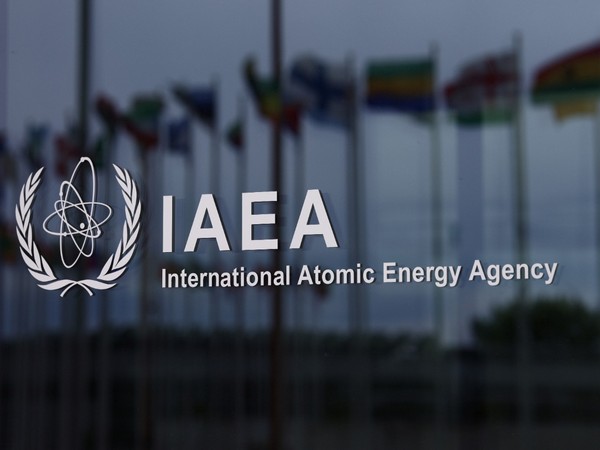IAEA conducts legislative assistance missions to strengthen nuclear legal frameworks
Prior to the mission, the IAEA carried out, upon request, a review of the current legal framework, in particular focusing on the existing Sri Lanka Atomic Energy Act No 40 of 2014.

During the fourth quarter of 2023, the IAEA conducted several legislative assistance missions to countries to support them in strengthening their national nuclear legal frameworks and joining the relevant international legal instruments.
Sri Lanka Continues Progress Towards Establishing a Robust Legal Framework for Nuclear Power
Sri Lanka is seeking to increase and diversify its power production capacity to tackle climate change and the challenges of energy security, by exploring the possibilities of nuclear power as a reliable and low carbon option for its energy mix.
In response to a request from the Government, in particular, the Sri Lanka Atomic Energy Board (SLAEB) and the Sri Lanka Atomic Energy Regulatory Council, a national workshop on nuclear law was held in Colombo, from 13 to 17 November 2023, and was attended by over 30 officials. To raise the awareness of decision-makers, policy-makers and senior officials, a series of bilateral review meetings were also conducted, including with the Ministry of Foreign Affairs, the Ministry of Power and Energy, the Ministry of Justice, the Legal Draftsman’s Department, the Attorney General’s Department and the Court of Appeal, as well as the University of Colombo.
S.R.D. Rosa, Chairman of the SLAEB said “Sri Lanka is facing several challenges from the increasing demand for electricity, the need to diversify the sources of energy and to achieve carbon neutrality of the electricity sector by 2040, as well as to raise living standards and improve industrial productivity.” He continued, “To address these challenges, we are seeking to introduce nuclear power as a low carbon and efficient base-load energy source. To do so, a sound and comprehensive legal framework is one of the fundamental boxes for us to check. We therefore highly appreciate the IAEA’s support in helping us to move forward.”
Prior to the mission, the IAEA carried out, upon request, a review of the current legal framework, in particular focusing on the existing Sri Lanka Atomic Energy Act No 40 of 2014. The review to provided analysis to help the drafting team identify gaps and areas to be strengthened and enable implementation of the relevant international legal instruments, with the aim of supporting the development of a new comprehensive piece of legislation that can provide the legal basis for a potential future nuclear power programme. Discussions regarding the IAEA’s review of the current legal framework were also held during the mission.Facilitating Decision-making on Nuclear Liability in Armenia
From 27 to 29 November 2023, the IAEA conducted a joint legislative assistance and International Expert Group on Nuclear Liability (INLEX) mission in Yerevan, Armenia. This was aimed at supporting the country in harmonising its national nuclear legal framework with the modernised international instruments on civil liability for nuclear damage, such as the Convention on Supplementary Compensation for Nuclear Damage and the 1997 Vienna Convention on Civil Liability for Nuclear Damage.
The mission created a collaborative space for open dialogue and knowledge-sharing among participants including the Armenian Nuclear Regulatory Authority (ANRA), the Ministry of Foreign Affairs, the Armenian Nuclear Power Plant and the Nuclear and Radiation Safety Center, as well as representatives of the parliament of the Republic of Armenia.
Khachatur Khachikyan, ANRA Chairman said “For many countries, civil liability for nuclear damage is not an easy area to understand and make informative decisions on but it is crucial to have such a mechanism in place to build confidence for the public, especially for nuclear power countries.” He continued, “The IAEA team provided comprehensive and thorough knowledge to facilitate our decision making regarding the adherence to the modernised international liability instruments, as well as the way forward for a solid national nuclear legislation.”Enabling the Safe, Secure and Peaceful Uses of Nuclear Technology in Turkmenistan The IAEA conducted a legislative assistance mission in Ashgabat, Turkmenistan, from 4 to 8 December. This mission aimed at strengthening the understanding of the relevant international legal instruments and the elements of a comprehensive national nuclear legal framework. Consisting of awareness meetings and a national workshop on international and national nuclear law, the mission enabled more than 20 officials to familiarize themselves with the four branches of nuclear law: safety, security, safeguards and civil liability for nuclear damage.
“Turkmenistan joined the IAEA in 2016 and recently became party to Early Notification and Assistance Conventions. It is essential and time sensitive for us to know more about the other international legal instruments adopted under the IAEA auspices, as well as what should be the way forward to develop an up-to-date and commensurate national legal framework to benefit more from nuclear technology,” said Сharyyev Dayanch, Head of International Cooperation Division, Civil Defence and Rescue Operations Directorate, Ministry of Defence of Turkmenistan. “With the knowledge and insights acquired from this mission, we have confidence now to amend the current Law No. 56-IV of 15 August 2009 on Radiation Safety with more assistance from the IAEA,” he said.Supporting the Development of a New Comprehensive Nuclear Law in Colombia The IAEA legislative assistance mission to Bogota, Colombia, from 4 to 8 December 2023, provided an opportunity to assist the country in preparing a new comprehensive nuclear law for the safe, secure and peaceful uses of nuclear technology.
A national workshop on nuclear law gathered more than 30 participants from the public, private and civil society sectors. In addition, the mission included a series of awareness-raising meetings on nuclear law aimed at parliamentarians and government officials. These included meetings with representatives of the House of Representatives and the Executive Branch of the Government, among which were the ministries of mining, environment, science and technology, commerce, justice, foreign affairs and health, as well as other relevant Government entities.
- READ MORE ON:
- IAEA










